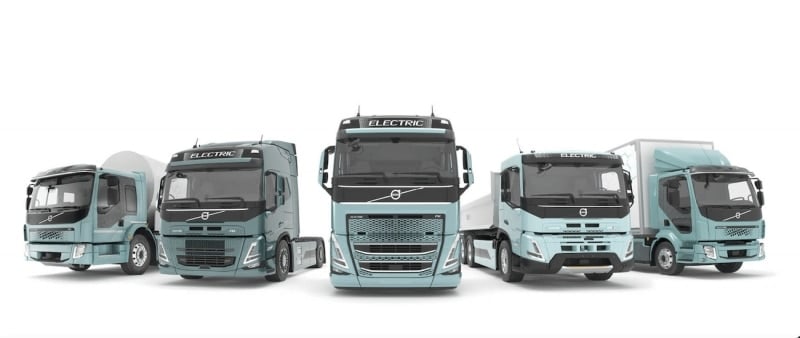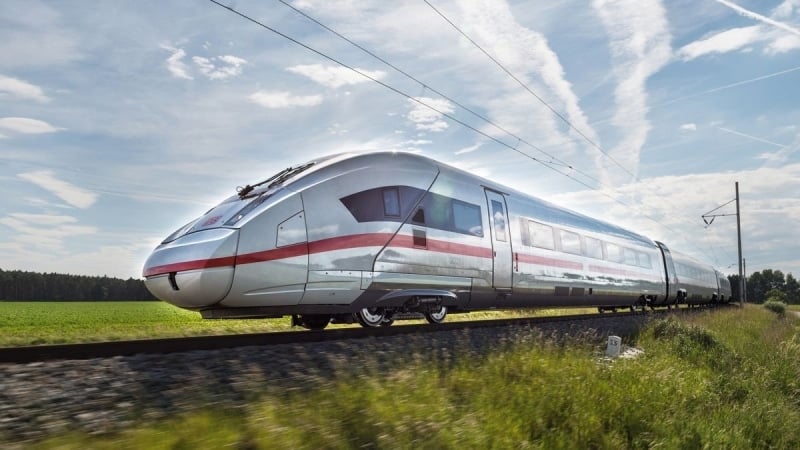This week in the Sustainable Motorsport Roundup I feature a number of very cool news that you don’t want to miss. From the recent Formula E Innovation Summit to McLaren and Mercedes working to increase their sustainability, to the brand-new BMW M4 GT4 race car built with sustainable fibers, there are some fantastic developments. I also look at the new Firestone sustainable race tire, the Targa Florio going electric and my occasional column on sustainable transportation developments. All this and much more sustainable motorsport news racers can use.
Sustainable Motorsport News
- Formula E’s inaugural Innovation Summit took place just prior to the London round of the championship at the end of July. Entitled ‘Change. Accelerated. Live’, the event sought to bring together voices from across motorsport, sustainability, politics, education and business to discuss how motorsport can drive innovation and encourage sustainable development and featured FIA deputy president for sport Robert Reid. “As an organization, we are already carbon neutral and we are working toward net zero carbon in 2030. We are taking significant steps along that journey. By 2025 all FIA world championships will need to reach the highest level of the FIA Environmental Accreditation, and by 2026, all FIA championships will be required to be powered by 100% sustainable energies – from advanced, sustainable drop-in fuels to battery and hydrogen technologies. All of these will play a critical role in the future of the entire transportation industry.”
- Zak Brown, CEO of McLaren Racing, and Formula 1 Driver Lando Norris discuss with Goldman Sachs McLaren’s journey back towards the top of the grid and their sustainability mission. Brown: “I’m asked often ‘are we going to lead or follow in sustainability?’ And I think the answer is both … We have cutting edge technology that we can deploy, not only within our Formula 1 and racing environment, but we do a lot of work with countries and other industries to share our knowledge and know-how. And I believe sustainability is a journey where you’re never going to reach your final destination. So, while we have set specific goals, net zero by 2040, DE&I around having a more diverse workplace, up to 40 percent is our goal by 2030 … it’s going to be what we can do, what we can do with our partners, what our employees can do, who we’re affiliated with, that will all come together.”
- Mercedes F1 recently announced an increase in employees from under-represented backgrounds, following the launch of its Accelerate 25 program. As part of the announcement, they also highlighted some of their sustainability initiatives. The team has also said that it is exceeded its ambition to cut its CO2 emissions by 50 per cent by 2022, and is now “looking ahead to our next challenge as we work to transition from leading practice to becoming pioneers”. This involves a 100 per cent reduction in Scope 1 (direct) and Scope 2 (indirect – owned) emissions by 2026, as well as a 50 percent drop in Scope 3 (indirect – not owned) emissions. Blackbook Motorsport has additional details.
Sustainable Motorsport Tech
- Sustainable materials manufacturer Bcomp is heavily involved in the recently announced M4 GT4 race car that features the most natural fiber parts for a GT series race car to date. “According to the company, the use of natural fibers reduces greenhouse gas (GHG) emission reductions from cradle to gate up to 85% while adding performance benefits like improved vibration damping. Ductile failure mode without sharp debris and splinters, and stiffened parts also reduce dangerous debris upon impact during crashes, enhancing driver safety. Moreover, as the natural fiber components reach their end of life, BMW says they can be processed through the standard waste management system.”
- Bcomp also took a look at McLaren Racing’s recent sustainability report and discussed some of the initiatives that they have been involved in. “The work we did with McLaren Racing on the timing stand and engineers’ island helped them to reduce travelling freight weight by 3450 kg. The new timing stand and engineers’ island are made in a hybrid flax-carbon construction with Bcomp’s ampliTex™ high-performance reinforcements making up the majority share. Replacing the previous carbon fibre components with natural flax fibre composites allowed McLaren Racing to decrease their amount of air freight and reduced their GHG footprint.”
- I have mentioned Porsche’s 718 Cayman GT4 ePerformance in past Sustainable Motorsport Roundups before but Daily Sportscar takes a deep dive into its performance and where the car fits into Porsche’s motorsport strategy. “With the Mission R, we’ve shown how Porsche envisages sustainable customer motor racing in the future. The 718 Cayman GT4 ePerformance now demonstrates that this vision works impressively on the racetrack,” states Matthias Scholz, GT racing vehicle project manager. “We’re very excited about the response because a one-make cup with electric racing cars would be an important addition to our existing customer racing programme.”
- The Firestone Firehawk guayule race tire will make its on-track debut this weekend at the Big Machine Music City Grand Prix on the streets of Nashville, another milestone in the efforts of Firestone and the NTT INDYCAR SERIES to promote sustainability. “The introduction of guayule natural rubber to America’s pre-eminent open-wheel racing series speaks to the confidence we have in the technology and its promise as a scalable, sustainable and domestic source of natural rubber—a vital raw material,” said Nizar Trigui, chief technology officer and group president, Solutions Businesses, Bridgestone Americas, Inc. “This milestone represents our commitment to realizing a more sustainable future for tires, racing and mobility.”
Series News

- The Targa Florio is set to return to a competition with modern-era sports cars, with SRO Motorsports Group planning to utilize the event for its GTX World Tour beginning in 2024. Announced during its annual press conference at Circuit de Spa-Francorchamps last weekend, SRO’s forthcoming all-electric vehicle competition will take on portions of the historic 72-kilometer circuit in Sicily that’s now run as a historic rally event. SRO founder and CEO Stephane Ratel said his concept would establish a link between the oldest sports car racing event in the world and the “most modern project of the 21st century.”
- The Independent looks at Formula E in ‘Racing with reason’ and football crossovers: How does Formula E continue to grow? “The answer should be the fans are the focus. We have to grow the championship and a fanbase. But to do that we have to keep partners happy, attract new ones, keep the teams positive about the direction of the championship. So there are a lot of demands, but if we don’t work hard to make it a fan-focused sport, we will lose. To grow the sport you have to go right to the heart – which is the racing itself.”

- Sustainability efforts can extend far beyond a race day, match, or tournament. Julia Pallé of Formula E shared her insights on creating more sustainable supply chains throughout the entire Formula E Championship circuit with the Sports Innovation Lab. You can watch the video above.
- Racer reports that track testing of Indycar’s new 2.4-liter twin-turbo V6 hybrid engines made by Chevrolet and Honda has been pushed to the offseason at the behest of both manufacturers. Prior to the change, the maiden hybrid test was due to be completed before the end of July. A need to redesign the crankshafts and fortify the main bearings is said to be at the root of the testing delay. Manufacturing new crankshafts for IndyCar engines can take quite some time under normal production timelines, and with significant new supply chain issues being faced in receiving the raw materials to machine, delays of six months or more have been cited.
- The all-new all-electric cars competing in the 2022 FIA World Rallycross Championship will make their debut on 11 August according to The Checkered Flag. The 500kW (680bhp) monsters will be unveiled in a presentation and parade through downtown Stjørdal, Norway, as part of the warm-up for the Rammuden World RX of Norway.
The Big Picture

- In Introducing Scope F (for Fan), the Green Sports Blog offers an interesting way for sports fans to make a direct contribution to sustainability initiatives. F stands for fan and Scope F covers the CO2 emissions that a sports club influences among its fans. These include emissions embedded in the purchases fans make based on ads they see during games, sponsorships they may read about online, and more. The report indicates that a team’s Scope F emissions can be comparable to its Scope 1, 2, and 3 emissions combined.
- While this site and column are about motorsport, sustainability cannot just be viewed through that lens, which is why The Big Picture looks outside motorsport and sports in general. Being aware of what companies are faced with is an important element to understand as they are potentially your sponsorship partners. While the following articles look at the issue through a legal lens, they are still important to keep in mind when trying to understand the pressures facing companies in this day and age.
- In Colour does matter: why green hydrogen is the only alternative, Sustainability For All looks at this slightly confusing topic. There are several types of hydrogen defined by a colour code. We tell you about the role they play in today’s energy system and why green hydrogen is the only sustainable option.
Getting to the Track Sustainably
Getting to the Track Sustainably is my occasional column on developments in sustainable transportation that could have some application to motorsport. Since the majority of carbon emissions come from logistics and transportation, this topic is of utmost importance as motorsport works to make itself more sustainable.

- Bulk tonnage provider Spar Shipping, ship management leader Fleet Management and GoodFuels have successfully completed a 10-day trial of 100% sustainable marine biofuel on board the bulk carrier Spar Lynx. Over the voyage, Spar Lynx saw an 85% cut in sulphur oxides (SOx) emissions when compared to traditional fossil-based marine fuels. “Sustainability is also about affordability, and part of the picture is to enable the biofuels industry to scale up and secure both availability as well as low-cost sustainable biofuel alternatives for the maritime industry. The sustainable biofuels industry needs takers to be able to scale up, and the maritime industry is looking for availability and low cost.” (Biofuels International)
- One year after announcing a collaboration with JB Poindexter subsidiaries to develop commercial EVs, REE Automotive, EAVX, and Morgan Olseon have kicked off live demonstrations of the Proxima electric van – a joint prototype combining MO/EAVX’s new body and REE’s P7 platform. (Electrek)
- A research team from the US Department of Energy’s Pacific Northwest National Laboratory (PNNL) has developed a sodium-ion battery with greatly extended longevity. The findings, published in the journal Nature Energy, provide a promising recipe for a battery that may one day power electric vehicles and store solar energy. (Electrek)
- Students at Eindhoven University of Technology in the Netherlands created a prototype electrified car that removes and stores carbon dioxide from the air as it drives down the road. It was designed with the goal of capturing more CO2 than is emitted during the entire life cycle of a vehicle. (Green Racing News)

- Last year, JetBlue became the first airline to invest in Universal Hydrogen, an aerospace company working to decarbonize the global aviation industry through the adoption of zero-carbon emitting hydrogen as fuel. Recently, the company debuted its first hydrogen-fuel powered plane on its way to beginning test flights in the US. The aircraft is the newly liveried ATR 72-600 aircraft that the company has been using to develop a hydrogen retrofit kit, which could potentially be used on all manner of aircraft in the future. (Robb Report)
- Researchers in Europe say they have successfully produced synthetic jet fuel using carbon dioxide, solar energy and water as a part of the European Union’s SUNlight-to-Liquid project, according to sustainable energy publication Joule, a milestone in the fight to produce sustainable aviation fuels. (Forbes)
- The European Commission has approved a 5.4-billion-euro ($5.4 billion) hydrogen project jointly funded by 15 EU countries and 35 companies including Alstom (ALSO.PA) and Daimler Truck (DTGGe.DE), seeking to gain the edge in an innovative sector. (Reuters)
- Viritech, the pioneer of advanced hydrogen fuel cell powertrains, has signed a Memorandum of Understanding with Reaction Engines, the developer of game-changing thermal management technology, to support the development of more efficient powertrains for hydrogen fuel cell electric vehicles (FCEVs). (Viritech)
- Biofuels International discusses recent advances in the sustainable aviation industry. Thus, researchers all over the world are scrambling to figure out a more secure way to fuel aviation and mitigate its carbon footprint. Accordingly, US airlines have achieved an improved efficiency of 130% compared to 19784. However, despite immense improvements in aircraft technology, the industry has only been able to reduce carbon emissions by less than 15%. (Biofuels International)
- The European Parliament has backed a landmark ruling on aviation fuel that has set binding targets for the replacement of kerosene with less polluting energy source. Under the proposals, aircraft refuelling at EU airports will be obliged to use kerosene mixed with less polluting sustainable aviation fuel (SAF). The percentage of SAF in the mix will increase at roughly five-year intervals. (Biofuels International)

- The TRATON GROUP, Daimler Truck, and the Volvo Group, have completed the final step in forming the previously announced joint venture for charging infrastructure in Europe. The new joint venture, with Anja van Niersen as appointed CEO, is expected to have a significant role in supporting the European Union’s Green Deal for carbon-neutral freight transportation by 2050. (Electric Drives)
- European truck maker MAN has completed 20 prototypes of a semi-truck model that it intends to put into production starting in late 2023. The truck maker promises ranges of up to 497 miles (800 kilometers) in its planned semi-truck, which would give it one of the longest ranges in the industry. MAN, along with Scania and others, is part of the Traton Group, a subsidiary of the Volkswagen Group. (Autoweek)

- The growth of private aviation, especially in this chaotic post-covid environment, understandably concerns many. As one of the largest private aviation providers, Netjets explains their sustainability goals and how they plan to achieve them. “As the leader in private aviation, we are fully committed to reducing the environmental footprint made by NetJets. Therefore, we have created a multi-tiered program to address sustainability while continuing to examine all aspects of our business with environmental impact in mind.” Their program involves the following:
- Sustainable Aviation Fuel
- Blue Skies Carbon Offset Program
- Corporate Responsibility
- Electric Tugs
- All-Electric Aircraft
- FleetZero has an ambitious goal: to compete with global shipping companies with its own boats, powered entirely by electricity. The company just secured $15.5 million in new funding and is looking for the first ship to convert to run on its shipping container-shaped batteries.The company’s plan, described in detail here, is to convert existing ships to electric propulsion, replacing the diesel engine or generator with enormous batteries of the company’s own design. These would be loaded and unloaded like any other cargo, swapped out at ports and charged between journeys. Done right (and it seems likely that’s the way they’re trying to do it) a ship doing this can handle some of the longest and most popular routes across the Pacific. (TechCrunch)
- One of the biggest aerospace companies in the world is co-developing the “Flying-V,” a radical-looking airplane that could make aviation less expensive and more climate-friendly. “We want to make a big impact on reducing fuel consumption, and this aircraft is designed to be more energy-efficient,” TU Delft’s Roelof Vos told Euro News. “We are at a plateau in terms of aviation efficiency, and the Flying-V is trying to break through this plateau.” (Freethink)

- German rail operator Deutsche Bahn will become the newest member of the Star Alliance airline family as the group looks beyond the skies for green-tinged growth. Under a new ‘intermodal’ system, airlines across the Star Alliance network will be able to include Deutsche Bahn rail services as part of passenger bookings – with DB’s intercity ICE trains even sporting a flight number – allowing travellers to more easily connect between services. DB is the first partner in the Star Alliance initiative, which the group promises “intelligently combines airline with railway, bus, ferry or any other transport ecosystems, alliance-wide.” (Executive Traveller)







